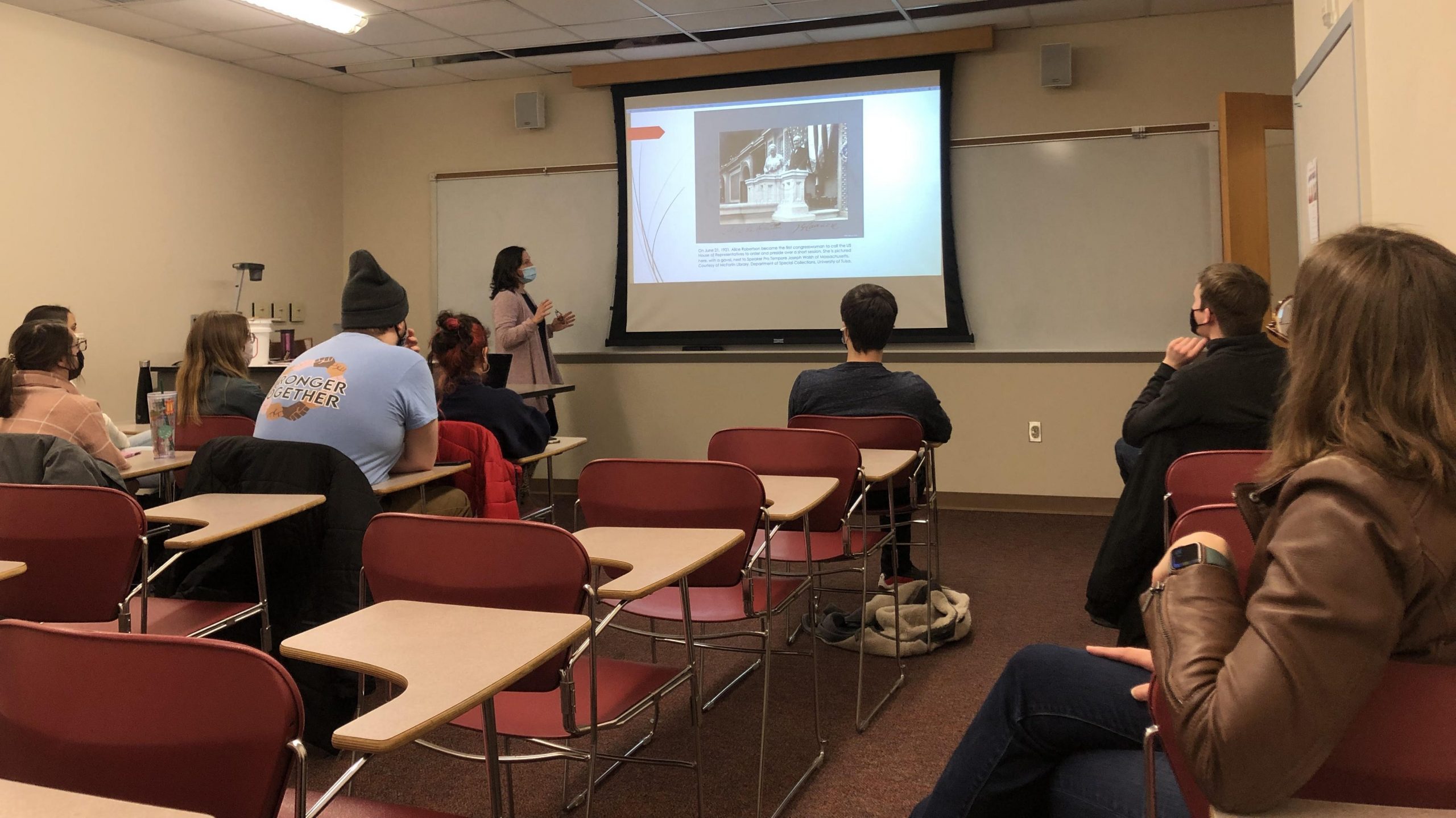
Women from all walks of life have had quite a profound role in history, but many historical figures aren’t talked about today. Such was not the case for one interesting woman of the past recently highlighted by a Bradley professor.
Bradley’s History Club hosted Amy Scott, an associate professor and director of the women’s studies program at Bradley, to talk about her research regarding former congresswoman Alice Robertson on March 7.
Scott is from a similar part of Oklahoma where Robertson grew up, and she returned home for her research at the University of Tulsa. However, she cited a lack of common knowledge about Robertson as the main reason for choosing her as her research subject.
“I went to the University of Tulsa, which interestingly is a university [that] Alice Robertson was a founder of,” Scott said. “Even [there] where I was a history minor, I never heard of her. There was a portrait of her in the [university] library … I can remember when I was an undergraduate walking by and going, ‘Who is this person?’”
Years ago, Scott was invited to be a fellow at the Gilcrease Museum in Tulsa, Oklahoma. She began deciding what archives and documents about Robertson to look at in the two-week period she was there.
During the hour-long event, Scott provided students with background and important facts about Robertson.
Robertson was born in 1854 in Tullahassee, Oklahoma. She grew up in a period during which people were still living in the reality of the cult of true womanhood, and was elected to Congress during the period of the “New Woman.”
Scott argued that rather than her being a hybrid result of both of those gendered political ideologies, Robertson was actually a Republican loyalist.
“She was a Republican Party woman,” Scott said. “She wasn’t really interested in the women’s movement … or gender consciousness. She was really into the idea of meritocracy and individualism, and that also informed her maternal conservatism.”
Attendees learned that Robertson was an educator, a social worker and a Native American rights activist. She was the second Republican congresswoman, the second woman to be elected to Congress and the first woman to be elected from Oklahoma.
After the lecture, participants were able to ask questions about Scott’s research and share their opinions. Gloria Rousseau, an organizer for History Club, was delighted to engage with the history of Robertson and her unique career.
“I really enjoyed the event because the topic was so niche and Dr. Scott was very knowledgeable,” Rousseau, a junior history and secondary education major, said. “It felt perfect to celebrate Women’s History Month by putting the spotlight on a woman that history has largely ignored.”

